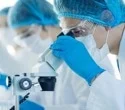Helicobacter pylori has a vulnerability that LMU researchers have identified that may be used to create new medications.
The virus Helicobacter pylori, which causes common diseases like gastric ulcers and stomach cancer, has a weakness that could be used to develop novel medications. Researchers from the Max von Pettenkofer Institute of Hygiene and Medical Microbiology at LMU, Professor Rainer Haas and Dr. Wolfgang Fischer, made this discovery. The journal Cell Chemical Biology has now published its findings.
The stomach bacterium infects more than four billion people globally, resulting in more than 800,000 cases of stomach cancer annually. The bacterium is getting more and more resistant to available medications, so the World Health Organization (WHO) has classified it as a pathogen with high priority for the research and development of new antibiotics. New approaches and therapeutics are urgently required to replace or complement established treatment methods.
The researchers were able to identify several compounds from various substance groups that incapacitate the respiratory chain of H. pylori even in small concentrations. For other useful bacteria, including representatives of the normal gut microbiome, these substances are unproblematic. These bacteria tolerate larger amounts of the substances.
The authors of the study used a broad spectrum of biochemical and microbiological methods as well as molecular modeling techniques to discover why H. pylori reacts so sensitively to these substance groups. They identified the cause in a slightly modified structure of the so-called quinone binding pocket in respiratory complex I.
This Achilles heel offers great potential for the development of specifically tailored new active agents that could be used as pathogen blockers against H. pylori. “Our results reveal a surprising weakness in the metabolism of these bacteria, which are well adapted otherwise to their unusual environment,” says Fischer.




